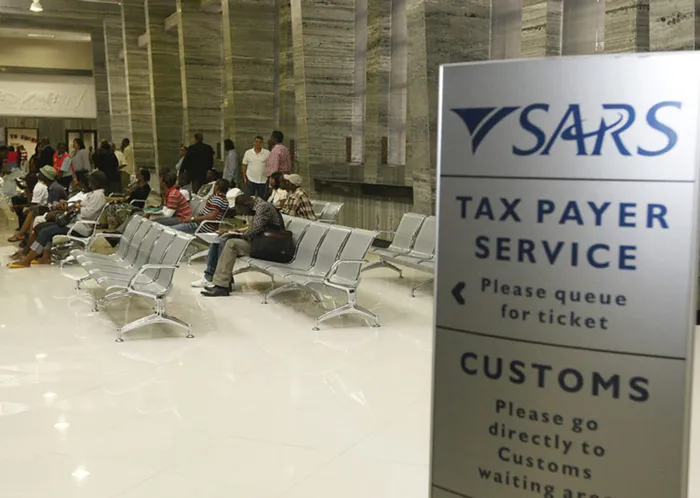
The South African Revenue Service is a success, says Cosatu.
Image: File photo.
One of the challenges of being a noisy democracy is that in our hunt for scandals, we often miss important victories, especially those that improve the lives of the working class.
The South African Revenue Service (Sars) is one such success. It is being achieved through the relentless efforts of its staff.
Their remarkable achievements in rebuilding a government entity that was at the heart of the state capture project, is an affirmation that the state can be fixed and capacitated to fulfill its constitutional and transformational mandate.
Sars by its nature must alienate society’s corrupt and criminal elements. This is exactly what occurred during the state capture chapter where it irritated powerful politicians by insisting they pay their taxes.
This led to an intervention at Sars, purging staff and appointing dodgy elements. It saw the deliberate decapacitation of Sars and its ability to target criminals, the wealthy and illicit trade. Society and in particular the working class paid the price with a fiscus battling to provide the developmental public and municipal services they depend upon.
One of the enablers for the developmental and economic successes of Presidents Nelson Mandela and Thabo Mbeki’s administrations, was the machinery put in place at Sars by the late Commissioner, Pravin Gordhan. This team enabled Sars to expand the tax base and improve revenue collection, thus allowing government to ease the tax burden upon the poor, invest in public services and the economy.
Whilst society, especially the working class, are correct to be impatient with the pace at which President Cyril Ramaphosa’s administrations have been able to overcome the chapter of state capture and exorcise the demons of corruption, we would do well to note the steady changes at Sars are laying the foundations to set South Africa back on the correct path.
Neo-liberal critics beat the drums about how the state can never be fixed and the panacea to society’s ills are austerity budget cuts and misguided privatisation. Yet the results of government’s interventions at Sars have shown the fallacy of such attempts to weaken the state and leave tackling South Africa’s deep socio-economic ills to the market’s moods.
Over the past five years, government has cleansed Sars of corrupt elements (with 421 corruption cases dealt with), appointed competent management, recruited skilled staff, invested in its infrastructure and staff capacity.
We must single out and applaud the insourcing of 740 cleaning staff. This has been a hard-won battle that Cosatu and its affiliates, in this case Nehawu, have tirelessly campaigned for.
In a time when right-wing cranks have pushed back against transformation and employment equity, Sars has shown that not only can employment equity targets be achieved, but that it can be a world recognised institution of excellence.
A staff that is invested in, whose right to decent work and a living wage is respected, that is protected from the abuses of outsourcing and the insecurities of casual work; will be a staff that is highly motivated and will ensure their workplace not only delivers but exceeds their targets. Workers are the state and society’ most valuable asset and must be treated as such.
We are seeing the fruits of Sars’ employees’ hard work. Tax compliance has increased from 62% to nearly 67%. Every 1% improvement is an additional R25 billion in revenue owed collected enabling the state to hire the police, teachers and nurses required to provide the public services society and the economy depend upon.
Particularly encouraging are some of the more difficult areas of tax collection improvement, e.g. R67 billion from tackling tax and customs fraud, R6.3bn from 10 000 customs’ inspections, R5.4bn from state capture, R94bn from 3.7 million debt cases and R30bn from 198 crime syndicates interventions.
One of the major sources of concern remains the scale and massive growth of illicit trade. Sars is to be commended for interventions recovering R7bn from illicit tobacco and gold, R4bn from oil, R400 million from fuel and R200mn from coal.
In a time when society correctly needs to see criminals held accountable, Sars’s 98% prosecution rate shows that the state with the necessary leadership, staff and resourcing can win this war.
When the Auditor-General highlights the horror stories of municipalities and other state institutions’ failing audits, Sars has shown unqualified audits can be achieved and institutionalised.
Whilst we applaud the work of the public servants at Sars, we remain concerned about the large amounts of taxes that remain uncollected. Areas of particular weakness include customs enforcement at our ports of entry, illicit trade in tobacco and similar products and the large informal sector.
The dangers of not ensuring that all imports at our air, land and seaports of entry are inspected for customs is not only lost revenue needed to fund schools and roads, but the risks these pose to South African jobs and businesses. The explosion in illicit tobacco and alcohol threatens local jobs, legally compliant companies and efforts by government to protect ordinary South Africans’ health.
Two critical tasks face the government and Parliament.
First is ensuring that Sars has the resources it requires to fulfil its mandate. Its 0.9% decrease in headcount and the impact of below inflation increases over many years undermine its ability to collect taxes. Sars has shown it can deliver. The government did well to heed Cosatu’s and other progressive calls for an additional R4bn in this year’s Budget. Further allocations are needed in the Medium-Term Budget Policy Statement due to be tabled at Parliament shortly.
Second is to continuously reinforce the integrity and capacity of Sars. The decade of state capture has shown how fragile even the best state institutions are. We cannot afford to repeat that lesson.
Cosatu is heartened by Sars’ turnaround. Sars’ workers’ tireless efforts must be applauded. This recovery sets the path for the state’s rebuilding, economic growth, reducing unemployment, easing the tax burden upon workers and renewing South Africa. It is one of the remarkable successes of government led by the African National Congress.

Cosatu President Zingiswa Losi
Image: Independent Newspapers
Cosatu President Zingiswa Losi
*** The views expressed here do not necessarily represent those of Independent Media or IOL.
BUSINESS REPORT